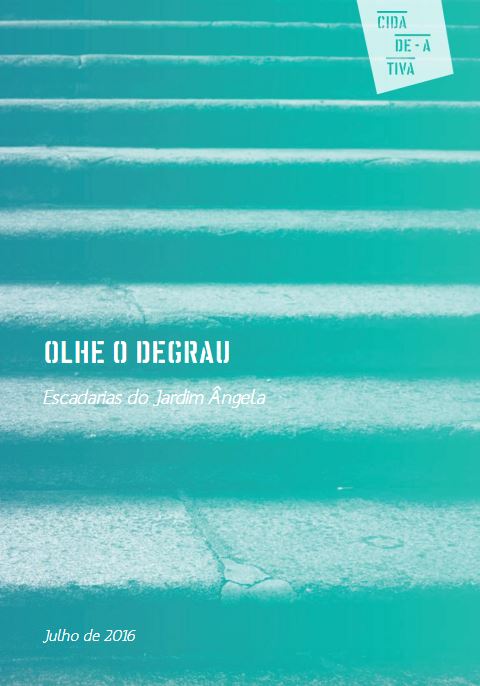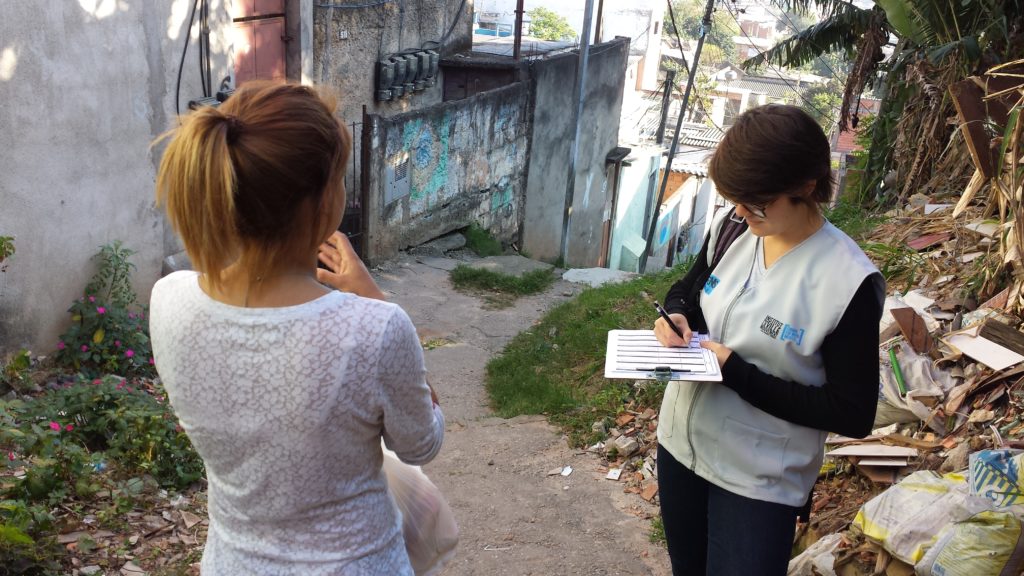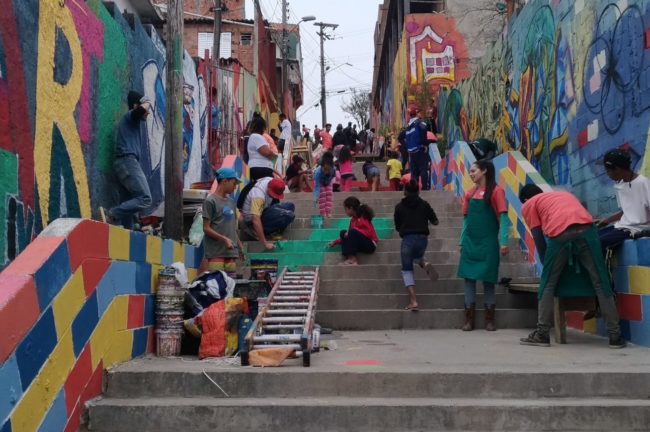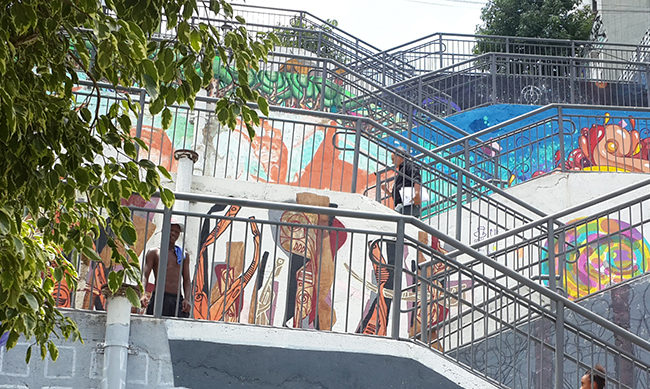
Mind the Step Jardim Angela
The Passages Program (Programa Passagens), developed by Cidade em Movimento Institute (City in Motion Institute), coordinated a series of micro accessibility studies in Jardim Ângela. Located in the south of São Paulo, the neighbourhood is known for its high social vulnerability and the surprising rates of violence that persisted in the 1990s.
The purpose of the program was to develop a diagnosis of the area so as to define actions that would improve the conditions of spaces (such as alleys, walkways, stairs, crossings) and to recognize the value of foot mobility. A partner in the project, Cidade Activa took the initiative “Mind the Step” to the region.

Credit: Cidade Ativa
At first, Cidade Ativa visited the stairs mapped in the neighborhood and applied interviews to understand how people move around the region and how they perceive these spaces. This initial analysis was performed on 14 staircases, within a radius of one kilometer of the future BRT corridor planned along the Estrada do M’Boi Mirim. The wishes of the residents and users of the area were similar: on almost all stairways, they called for better lighting, regular steps, handrails and drainage.
As a result of the analysis carried out in the neighborhood by all the teams involved in the Passages Program, the staircase in front of the State School Oscar Pereira Machado was selected for continuing the project. Cidade Ativa, then, held a workshop to engage the local community including students and the school faculty. The result of this activity oriented the design strategies for a physical intervention on the site.

Credit: Cidade Ativa
Based on this proposal, Cidade Ativa focused on making an initial phase of interventions possible, supported by GEDI Desenvolvimento e Inovação and Zoom Urbanismo, Arquitetura e Design. The physical transformation of the site was achieved through graffiti, mosaic and urban furniture construction workshops that brought together students, residents and local groups such as Ciclo Social Arte, Grêmio Transforma Jovem, Família Nakamura and Unidos do Macari.
In order to assess the impact of the project, additional data was collected, based on the methodology applied at the beginning of the project. Numbers show that more people started using the staircase, among them the children who started playing in the new slide. In addition, the interviews showed that the number of people that felt unsafe in the staircase reduced from 53% to 31%. These data highlight the importance of this type of interventions, especially in peripheral neighborhoods where there are fewer public open spaces available.
Many lessons can be learned from this process in Jardim Angela. A year after the intervention, the staircase remains preserved and in constant use, being continuously cared for by students and residents. This finding reveals the importance of a collaborative construction process to ensure the future maintenance of a site.
DOWNLOADS












